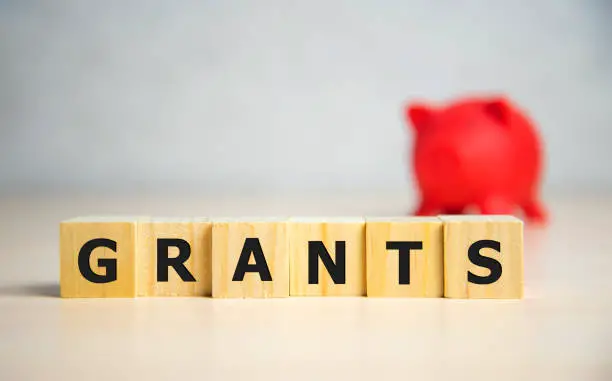Federal Government grants are a significant source of funding that can empower organizations, businesses, and individuals to actualize their objectives. Whether you’re running a nonprofit organization, a small business, a research institute, or you’re an individual seeking financial aid for education, understanding how these grants work can open up a world of opportunities. This guide will explore the nuances of federal grants, their application process, and how to leverage these funding opportunities effectively.
Understanding Federal Government Grants
Federal Government grants, often referred to as federal funding, federal aid, or government assistance, are monetary awards provided by federal agencies to carry out a public purpose of support or stimulation authorized by a law of the United States. They’re non-repayable funds disbursed by the government, which differentiate them from loans that need to be repaid.
Federal grants cover a broad spectrum of sectors including healthcare, education, scientific research, technology, and community development, among others.
Federal agencies such as the National Institutes of Health (NIH), Department of Education, and the National Science Foundation (NSF) frequently disburse these grants to eligible recipients.
Identifying Eligible Federal Grants
Finding a grant that aligns with your goals is the first step towards accessing federal funding. Grants.gov, the official website that provides comprehensive information about federal grants, is a valuable resource.
Potential grantees can browse through the listings to identify the grants that resonate with their objectives.
For example, if you’re a small business owner looking to innovate in the energy sector, the Department of Energy (DOE) often offers grants like the Small Business Innovation Research (SBIR) program. If you’re a researcher seeking to explore groundbreaking ideas, NIH’s Research Project Grant (R01) might be what you need.
The Application Process
The process of applying for federal government grants is rigorous, requiring a well-documented proposal detailing your project or program. Here’s a step-by-step guide:
1. Registration: Register your organization or yourself on Grants.gov to be eligible to apply for grants. Additionally, you’ll need a Dun and Bradstreet DUNS number, which is a unique identifier for your organization.
2. Search for Relevant Grants: Use the search tool on Grants.gov to identify suitable grants. You can filter the search based on your organization type, funding instrument type, eligibility, and category of funding activity.
3. Understand the Funding Opportunity Announcement (FOA): Each grant comes with an FOA that provides detailed information about the grant, including eligibility criteria, application process, deadlines, and contact information. Read the FOA thoroughly to understand what’s expected in the application.
4. Prepare Your Grant Application: This is where you detail your project or program. Your application will generally include a cover letter, executive summary, statement of need, goals and objectives, methods and design, budget, and evaluation plan.
5. Submit Your Application: Applications are typically submitted through the Grants.gov portal. Make sure you submit before the deadline. Late submissions are often disqualified.
Tips for Successful Grant Applications
1. Start Early: Grants require a lot of time to prepare. Start early to ensure you meet the deadline and provide a well-thought-out proposal.
2. Be Detailed and Precise: Grant reviewers look for applications that demonstrate a deep understanding of the problem and how the proposed solution addresses it. Make sure you provide clear, concise, and relevant information in your proposal.
3. Follow Guidelines: Every FOA comes with specific guidelines. Adhering to these guidelines, including formatting and submission instructions, is crucial for your application’s acceptance.
4. Proofread: Ensure your application is free from grammatical errors and typos. These can detract from the quality of your proposal and potentially jeopardize your chances of receiving the grant.
Leveraging Grant Opportunities
Successful grant applications can significantly boost your project or program. However, it’s important to remember that federal grants come with accountability. Grantees are required to report on the use of the funds, usually on a regular basis, to the federal agency that awarded the grant. Failure to do so can lead to penalties, including the termination of the grant.
By understanding the landscape of federal government grants, identifying suitable grants, preparing a compelling application, and utilizing the grant appropriately, you can take advantage of these opportunities to achieve your objectives. Remember, though the application process can be daunting, the potential benefits far outweigh the effort required. So start your search today, and unlock the potential that federal government grants can provide.
Remember to take advantage of grant writing services or grant writing software if you’re unsure about your ability to create a compelling application. These resources can be extremely helpful in securing a federal grant. Your federal funding journey may be just a successful grant application away!





vipjili https://www.vipjiliji.com